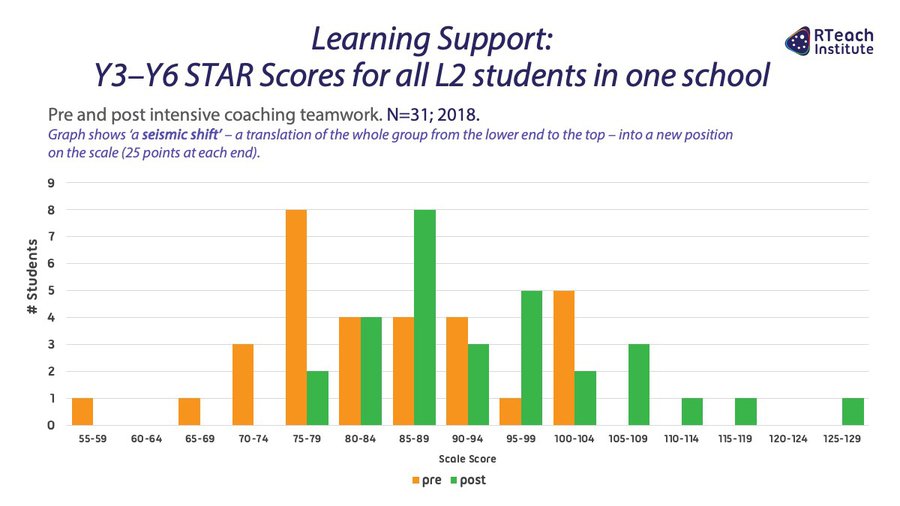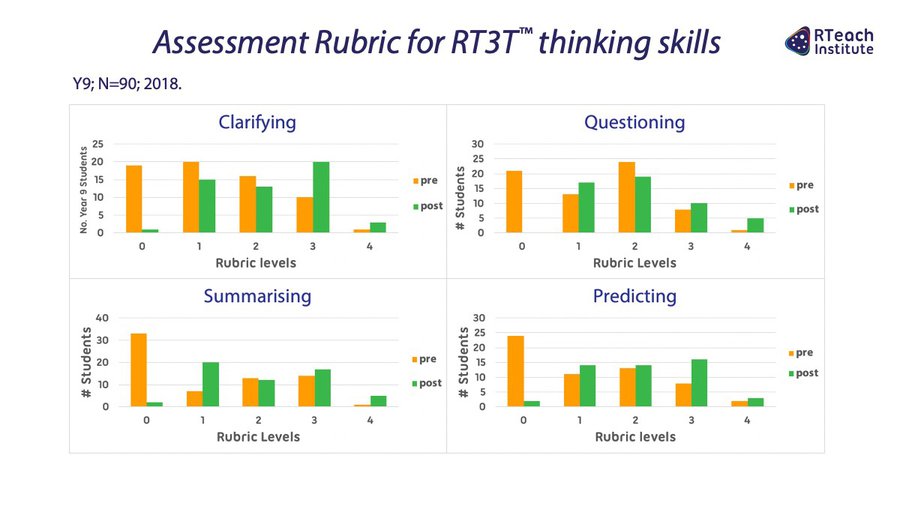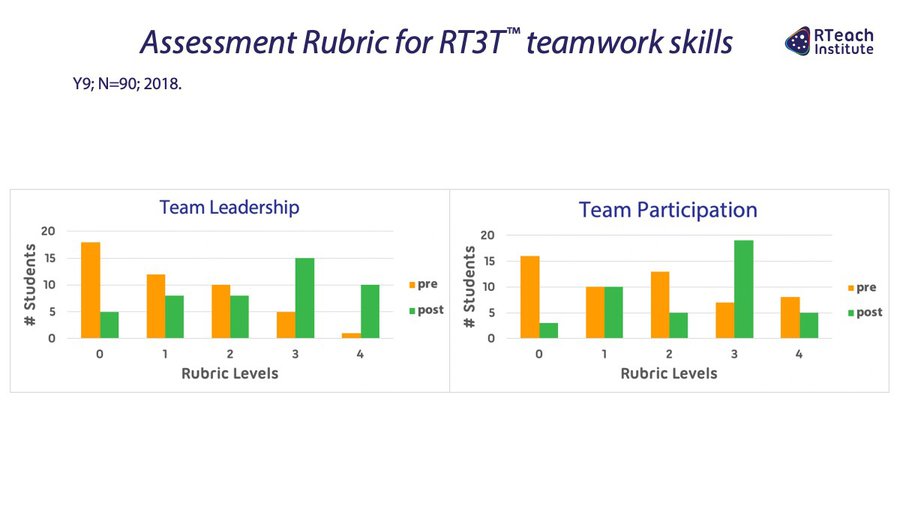Inclusion and proactive Learning Support
Reciprocal Teaching – RT3T™ is grounded within one of the most effective evidence-based inclusive methods we know and presents multiple opportunities within safe social contexts for diverse students to develop, practice, improve and transfer their key thinking and socio-emotional competencies for learning and life.

When students who require extra support have scaffolded skilled support and /or adaptation of RT3T™, they can enjoy belonging to their peer group and assuming teamwork and tuakana-teina relationships, becoming empowered learners, and learning both thinking and kanohi ki te kanohi collaborative skills.

RT3T™ includes Behaviour Skills Training (BST), for sustainably improving essential skills such as those required for communication, social situations and safety, and task engagement. Students who gain benefit from BST include those with Down Syndrome and with challenging behaviours, as well as neurodiverse students with Autistic Spectrum Disorder, Attention Deficit Disorder, Attention Deficit with Hyperactivity Disorder, Pervasive Developmental Disorder, Foetal Alcohol Syndrome.

Tags:
RT3T
reciprocal teaching
literacy
special education
thinking skills
teamwork
reciprocal reading
collaborative learning
inclusion
pedagogy
key competencies
evidence-based
autism
communication skills
learning support
Foetal Alcohol Syndrome
neurodiverse
Behaviour Skills Training
social skills
Autistic Spectrum Disorder
Down Syndrome
Attention Deficit Disorder
